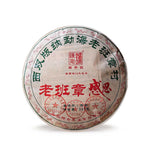National Tea Day
National Tea Day is celebrated annually in several countries, with the most recognized event observed in the United Kingdom on April 21st. Your recognition of this day is rooted in the rich tea-drinking traditions and the sheer love for this beverage.
Originating relatively recently, the United Kingdom marked its first National Tea Day celebration in 2016. Since then, you've seen it grow annually, becoming a significant date for tea enthusiasts. It serves not only as a day for you to enjoy your favorite brews but also as an opportunity to explore new flavors and to learn about the cultural significance of tea around the world.
Here is a brief timeline of National Tea Day:
Bestsellers
- 2016: Inauguration of the first National Tea Day event in the UK.
- 2017: Introduction of the Tea 'n' Talk campaign to promote mental health discussions.
- 2018: Collaboration with charities to raise awareness through tea parties.
- 2019: Extension of activities to include Tea Festivals and tea tasting events nationwide.
In your celebration, you acknowledge the diverse ways tea is produced and consumed globally. Your festivities often include:
- Tea Tastings: Exploring different blends and varieties.
- Workshops: Educating on brewing techniques and tea pairings.
- Online Engagements: Social media contests and virtual tea parties.
By participating in National Tea Day, you join a community that appreciates the history and cultural heritage of tea, reinforcing its status as a beloved global beverage.
Significance and Celebration
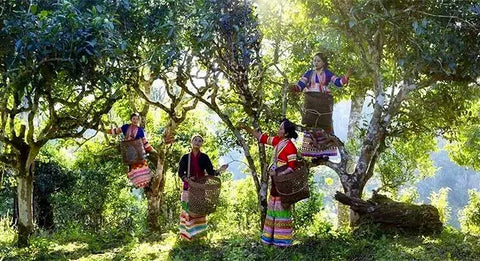
National Tea Day is observed to appreciate tea's rich heritage and its role in different cultures. This day marks an opportunity for tea enthusiasts to celebrate one of the world's most beloved beverages.
Cultural Importance
Tea holds a significant place in many societies globally. In countries like China and Japan, tea ceremonies have been a revered practice for centuries, symbolizing harmony and respect. In England, afternoon tea has become a cultural institution that showcases the social aspect of enjoying tea.
- China: The art of tea-making, known as Gongfu Cha, is practiced with precision and care, reflecting a time-honored tradition that values the aesthetic and sensory facets of tea drinking.
- Japan: The Japanese tea ceremony, also called Chado or Sado, focuses on the presentation and sharing of matcha, a powdered green tea, and is deeply intertwined with Zen Buddhism.
- England: Afternoon tea is a social event that typically features a selection of teas, scones, sandwiches, and pastries, highlighting the role of tea as a facilitator of social gatherings.
Celebration Methods
On National Tea Day, you can join the celebration in various ways that emphasize the enjoyment and communal aspects of tea drinking. Here are some common methods:
- Tea Tastings: Participate in local or online tea tasting events to explore different flavors and learn about tea varieties worldwide.
- Tea Parties: Host or attend a tea party with friends or family, celebrating with a range of teas and accompanying foods.
- Educational Workshops: Engage in workshops to increase your knowledge about tea origins, brewing techniques, and health benefits.
| Activity | Description |
|---|---|
| Social Media Sharing | Share your tea experiences and connect with fellow tea lovers by using hashtags like #NationalTeaDay. |
| Visiting Tea Rooms | Explore regional tea culture by visiting local tea rooms and indulging in their special offerings for the day. |
| Supporting Charities | Many events on National Tea Day support charities, so participating can also mean contributing to a good cause. |
Each activity aims to deepen your appreciation for tea and promote camaraderie among tea drinkers.
Tea Varieties Featured on National Tea Day
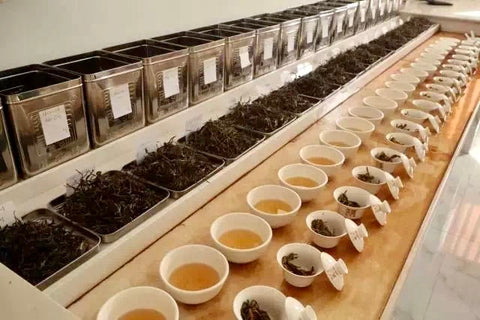
On National Tea Day, you'll encounter a vibrant selection of teas, each bringing its own unique flavor profile and brewing traditions. Explore the range of black, green, and herbal teas celebrated on this day.
Black Tea
Originating from various regions like India, Sri Lanka, and Africa, Black Tea is known for its robust flavor and higher caffeine content. Key varieties include:
- Assam: A full-bodied tea, often used in breakfast blends.
- Darjeeling: An aromatic and less astringent tea with muscatel notes.
Green Tea
Green Tea is celebrated for its delicate flavors and potential health benefits due to its minimal processing. Popular types include:
- Sencha: A Japanese green tea with a balance of sweetness and astringency.
- Longjing: A Chinese variety known for its quality and a gentle, sweet flavor.
Herbal Tea
Herbal teas, which are not true teas since they don't come from the Camellia sinensis plant, offer a caffeine-free alternative with a wide range of flavors. Examples are:
Lao Ban Zhang
- Chamomile: Flowery and calming, often used for relaxation.
- Peppermint: Refreshing with a cool, invigorating taste.
Health Benefits of Tea
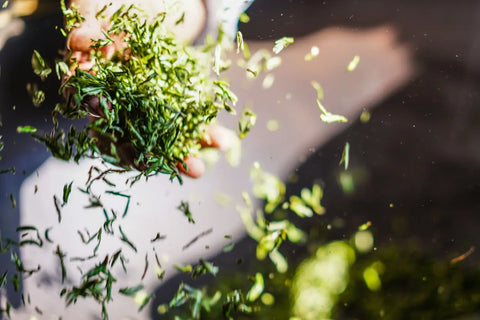
When you drink tea, you're not just enjoying a soothing beverage; you're also partaking in a drink that can offer several health benefits. Here are a few reasons why incorporating tea into your diet can be beneficial for your well-being:
- Antioxidants: Tea is rich in antioxidants called flavonoids, which assist in neutralizing free radicals in your body. This can help reduce oxidative stress and protect your cells from damage.
- Hydration: Despite the caffeine content, tea is a hydrating drink when consumed in moderation, helping to maintain fluid balance in your body.
Types of Tea and Their Specific Benefits
Green Tea
- Weight Management: Green tea may boost metabolism slightly, aiding in weight management.
- Heart Health: Regular consumption can support a healthy cardiovascular system.
Black Tea
- Oral Health: Contains polyphenols that can inhibit bacteria growth in the mouth, reducing plaque formation.
- Mental Alertness: The caffeine in black tea sharpens your focus without the jitters often associated with coffee.
Herbal Tea
- Digestion: Certain herbal teas, like peppermint or ginger, can soothe your digestive system.
| Tea Type | Benefit |
|---|---|
| Green | Antioxidant-rich, supports metabolism |
| Black | Oral health, mental alertness |
| Herbal | Digestive aid |
Keep in mind that moderation is key, and while tea can contribute to a healthy lifestyle, it's not a cure-all. Always consider your individual health needs and consult with a healthcare provider if necessary.
Tea Industry and National Tea Day
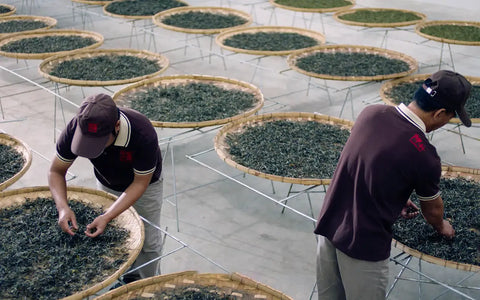
National Tea Day provides a focused opportunity to examine the tea industry's significance and the various strategies used for its promotion.
Economic Impact
Your understanding of the tea industry's economic weight is evident in the vast numbers involved. In 2023, global tea production amounted to approximately 6.3 million metric tons, with an industry valued at over $200 billion. Employment in the sector spans from agriculture to retail, impacting millions of livelihoods worldwide.
- Major Producers: China, India, Kenya
- Top Importers: United States, Russia, United Kingdom
Promotions and Marketing
On National Tea Day, your attention turns to the tea industry's marketing ingenuity. Brands often leverage the day to launch new products or discounts. Consider these typical promotional tactics used on this day:
- Limited-time offers: Special blends or discounted prices
- Social media campaigns: Hashtags like #NationalTeaDay encourage sharing
- Events: Tea tastings and festivals to engage consumers
Global Observance
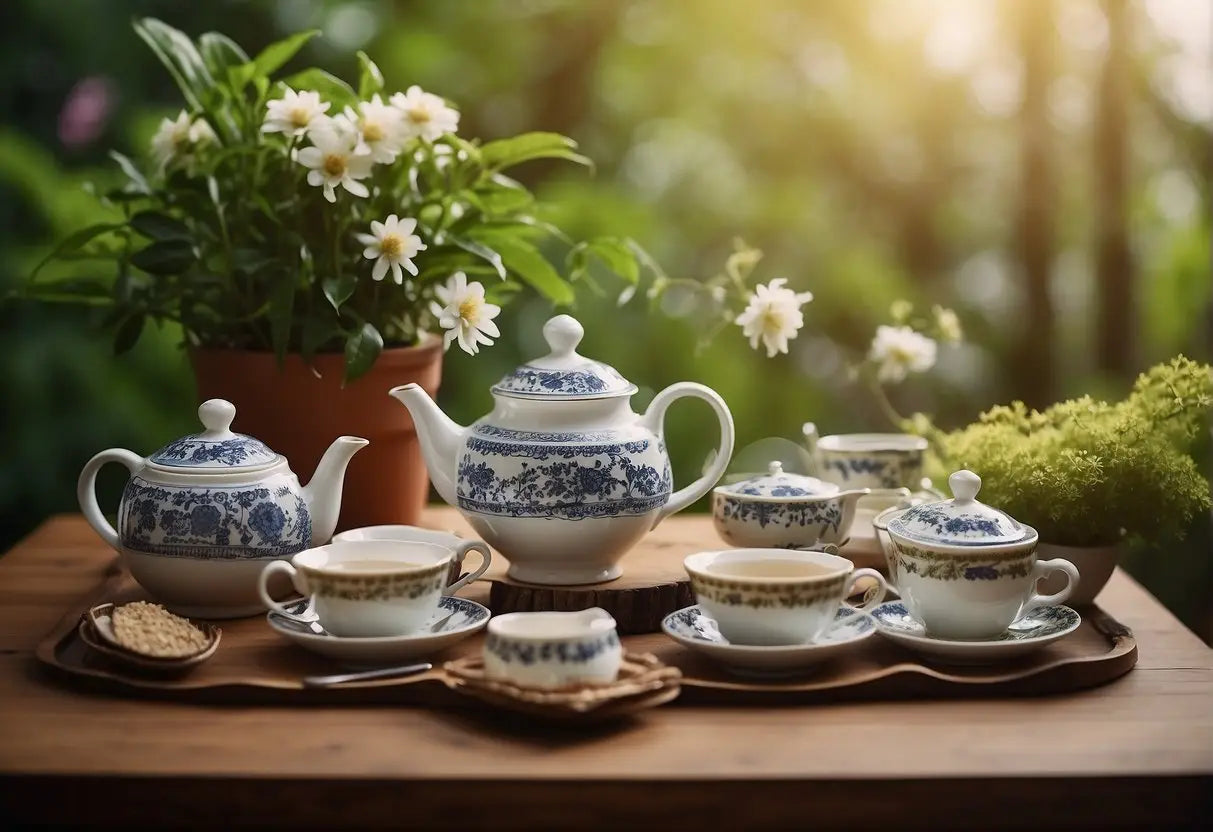
On National Tea Day, you join millions around the globe in celebrating one of the most beloved beverages. Various countries observe this day with unique customs and traditions. Here's how tea lovers across the world mark the occasion:
- United Kingdom: National Tea Day on April 21 coincides with Queen Elizabeth II's birthday. Here, tea parties and fundraising events are common.
- United States: While not official, many tea enthusiasts engage in tastings and cultural events on National Tea Day.
- India: Home to a rich tea culture, India celebrates International Tea Day on December 15, to honor the tea workers.
- China: As the origin of tea, China observes several tea-related festivals, with some coinciding with tea harvest seasons.
Tea Festivals Around the World:
| Country | Event | Date |
|---|---|---|
| Japan | Nihoncha Matsuri | October |
| South Korea | Boseong Green Tea Festival | May |
| Sri Lanka | Colombo Tea Auction | Throughout the year |
| Morocco | Moroccan Tea Festival | Varies regionally |
In your celebration of National Tea Day, you may partake in local events, enjoy special offers from tea shops, or simply savor a cup of tea reflecting on its global significance.
Traditional Tea Brewing Techniques
When brewing tea, the type of tea and your personal preference will guide the process. Green tea, for instance, is often brewed with water well below boiling point, around 150-180 degrees Fahrenheit, to avoid bitterness. In contrast, black tea usually calls for hotter water, typically around 200-212 degrees Fahrenheit.
For loose leaf tea, follow these steps:
- Measure the Tea: Typically, use about 1 teaspoon of tea leaves per cup of water.
- Heat the Water: Heat your water to the correct temperature for the type of tea you're making.
- Steep: Place tea leaves in the teapot or a tea infuser and pour hot water over them. Steep for the time appropriate for the type of tea – usually between 2 to 5 minutes.
| Type of Tea | Water Temperature | Steeping Time |
|---|---|---|
| Green Tea | 150-180°F | 2-3 minutes |
| Black Tea | 200-212°F | 3-5 minutes |
| Oolong Tea | 180-200°F | 2-3 minutes |
| White Tea | 160-185°F | 4-5 minutes |
| Herbal Tea | 212°F | 5-7 minutes |
For tea bags, although the process is simplified, the principles remain the same. Ensure your water is at the correct temperature for your choice and steep according to the instructions, usually provided on the tea's packaging.
Lastly, your personal touch matters. While tradition can guide you, adjusting the strength and flavor to your liking is part of the tea experience.
Tea Tasting Events and Activities
During National Tea Day, you have the opportunity to participate in a variety of tea tasting events and activities. These are designed to cater to both novices and connoisseurs alike. Here's what you can expect:
-
Professional Tea Tastings: Led by experienced sommeliers, these sessions guide you through the nuances of various tea flavors. You'll learn to detect subtle differences and understand the complexity of tea profiles.
-
Blend Your Own Tea Workshops: These interactive workshops allow you to blend and create your own unique tea. Ingredients vary from herbs to different types of tea leaves, giving you full control over the flavor you wish to achieve.
-
Tea and Food Pairing Classes: Discover how certain teas complement different foods. Achieve new culinary experiences by learning which teas to pair with specific dishes.
-
Cultural Tea Ceremonies: Experience traditional tea ceremonies from around the world. These events focus on the cultural significance and rituals associated with tea drinking.
| Time | Activity | Location |
|---|---|---|
| 10:00 AM | Professional Tea Tasting | Tea House Central |
| 11:30 AM | Blend Your Own Tea Workshop | Community Center |
| 1:00 PM | Tea and Food Pairing Class | Local Bistro |
| 3:00 PM | Chinese Tea Ceremony | Cultural Hub |
Remember to engage with the community and share your experiences on social media to help promote the love and appreciation of tea.
Influence of National Tea Day on Tea Culture
National Tea Day plays a pivotal role in enriching tea culture. By celebrating this day, you become a part of a community that appreciates the diverse range of tea varieties and brewing methods. Your participation helps to highlight the cultural significance of tea, fostering a deeper understanding and appreciation.
-
Knowledge Sharing:
- Seminars and workshops are often organized.
- Experts share insights on tea cultivation, brewing techniques, and history.
-
Cultural Exchange:
- Tea traditions from different countries are showcased.
- You get exposed to international tea practices.
Tea Tasting Events: These events multiply during National Tea Day, allowing you to experience unique flavors and blends. These tastings can influence your taste preferences and consumer habits.
Economic Impact: Special promotions and discounts are common, which can lead to a boost in tea sales. This benefits the industry and introduces you to new products.
Social Aspect:
- Tea parties and social gatherings encourage community interaction.
- You can connect with fellow tea enthusiasts and share personal stories.
Conservation Efforts:
- Your awareness of tea's environmental impact grows.
- Events may focus on sustainable practices within the tea industry.
By participating in National Tea Day, you contribute to the vibrancy of tea culture. It's a chance to celebrate, learn, and engage with one of the world's most beloved beverages.
Tea in Popular Media on National Tea Day
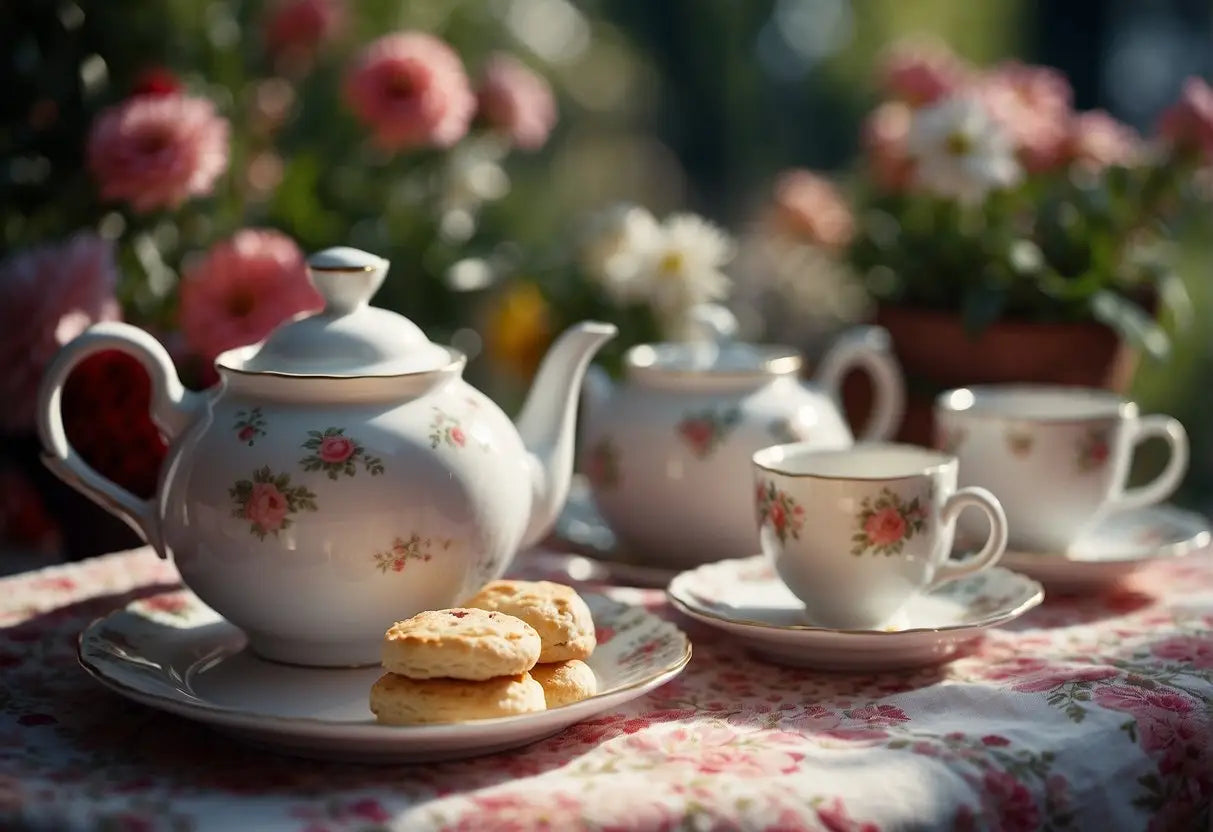
On National Tea Day, you'll find that tea isn't just a beverage; it's a cultural phenomenon that permeates various forms of media. In literature, the classic Alice in Wonderland by Lewis Carroll introduced the iconic Mad Hatter's tea party, a scene that has been widely adapted and referenced in film and television.
In the realm of television, the British show Downton Abbey showcases tea time as a quintessential element of everyday life among the British aristocracy. Tea ceremonies also serve as a backdrop for drama in many East Asian dramas, highlighting the ceremonial aspects intrinsic to those cultures.
When it comes to commercials and marketing, many tea brands like Twinings and Lipton often launch special ads to celebrate National Tea Day. They evoke the warmth, comfort, and communal feel that tea brings, connecting with audiences who share a love for the brew.
| Media Type | Examples |
|---|---|
| Literature | Alice in Wonderland |
| Television | Downton Abbey, East Asian dramas |
| Commercials | Twinings, Lipton National Tea Day ads |
| Music | "Englishman in New York" by Sting |
Songs such as "Englishman in New York" by Sting, though not about tea per se, mention the drink to evoke a sense of calm and belonging. The lyric "I don't drink coffee, I take tea, my dear" points to personal preference that resonates with many tea lovers worldwide.
On this National Tea Day, as you sip your favorite blend, look out for the subtle and overt nods to tea in your favorite forms of entertainment. They reflect tea's ubiquitous presence and its unassuming role in storytelling and branding.
← Older post Newer post →











